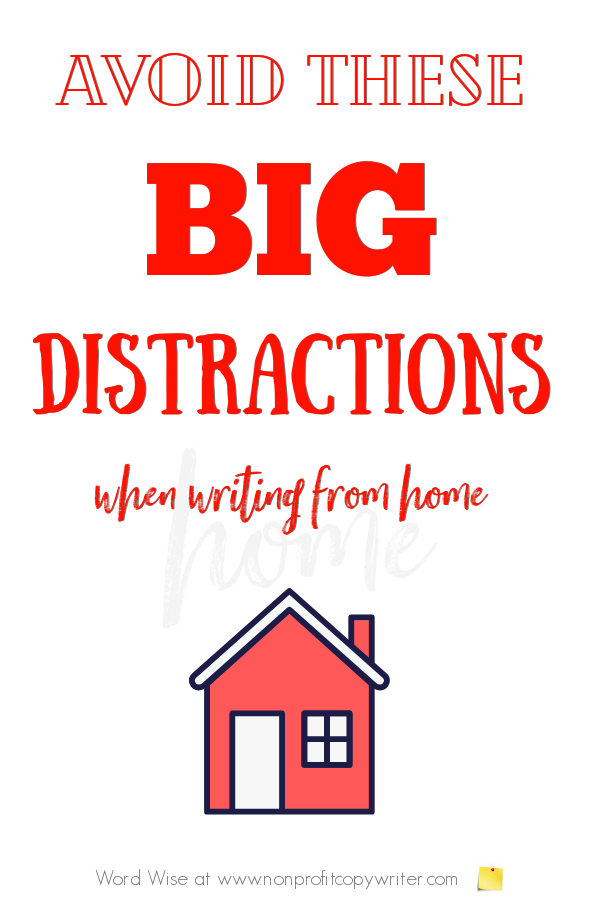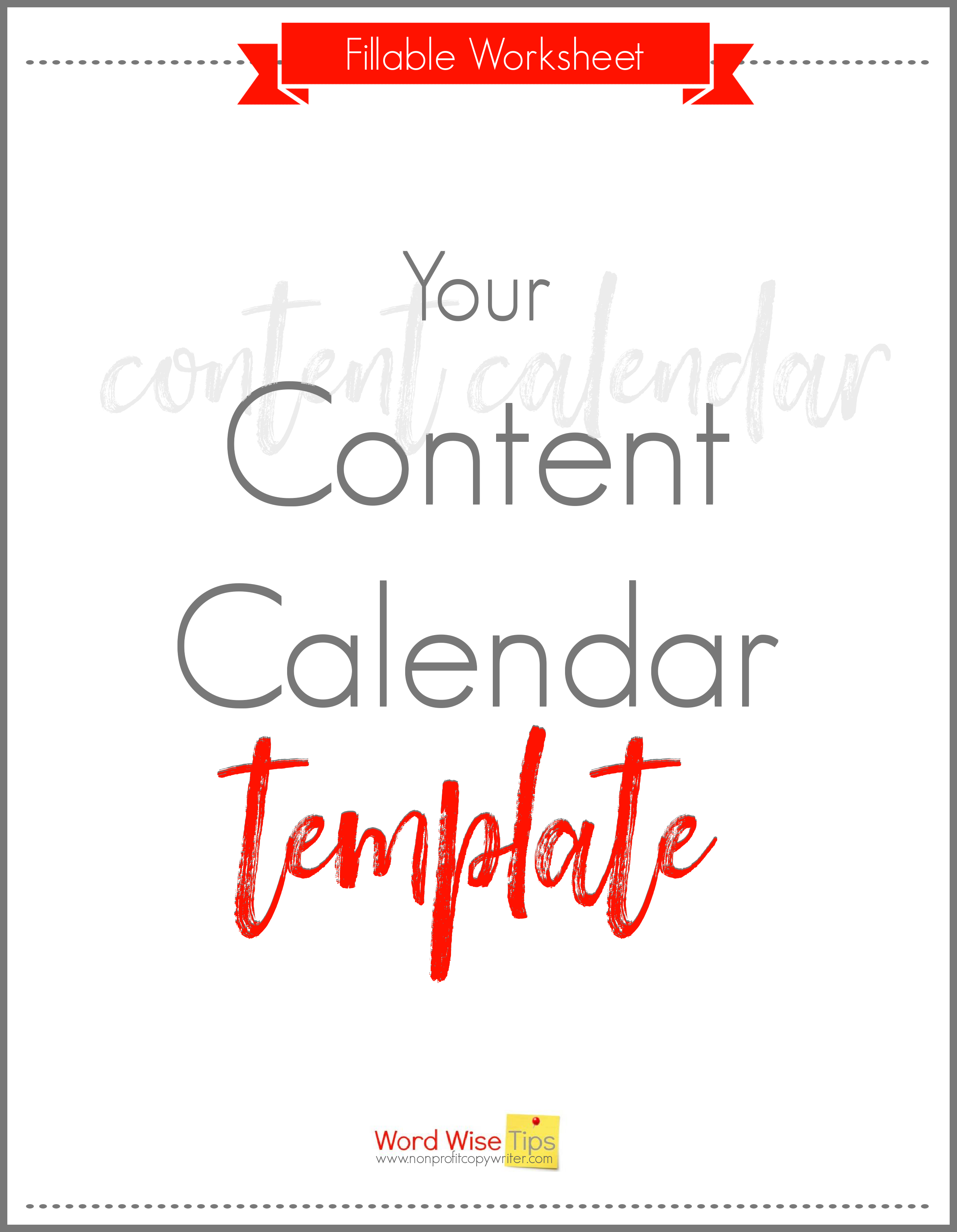Save Time: Get 5 Simple Writing Tips
you can put to use in 10 minutes
Manage These 3 Big Distractions When You’re Writing At Home
Award-winning writer Kathy Widenhouse has helped hundreds of nonprofits and writers produce successful content , with 750K+ views for her writing tutorials. She is the author of 9 books. See more of Kathy’s content here.
Updated 12.18.2023
Whether you’re writing at home or writing at work or writing at the coffee shop on the corner, you’ve got plenty of distractions. There’s email … phone calls … internet.
Yet writing at home is different than writing in a work environment. At work, you’re forced to produce for your boss. At home, you’re the boss, even when you’re writing at home for work. And if you’re at home working on writing as a side hustle — or you’re a freelance writer — well, the stakes are even higher.
Regardless of why you’re cocooned in your slippers with your laptop in order to knock out content, you need to be acutely aware of the special distractions you face while writing at home. You want to maximize your time. If you don’t produce, then you’ll mistakenly believe, “Writing at home is too diverting. I can’t do it.”
Those special homegrown distractions? Surprise: they’re not your kids or the dog that needs to be let outside or the clothes dryer buzzer that reminds you to remove and fold a load of shirts.
I’ve learned that the biggest distractions I face when writing at home are from me. If I’m not careful, I self-sabotage myself.
But when I eliminate my biggest time-grabbers, I get much more writing done. Maybe you can too. It’s all about putting actual writing first.
My 3 biggest writing distractions when writing at home
Distraction #1: Planning
I’m a big planner. I plan meals and keep a grocery list on the refrigerator. I start purchasing Christmas gifts in March. I organize family vacations.
And naturally, I like to plan what to write. But planning my writing and writing itself are two different activities. It’s very easy for me — a planner and organizer by nature — to get sucked into planning a piece of content when I should be actually writing it.
The difference is subtle. My “Planning Distraction” shows itself in lists. (Planners are good at making lists). I make lists of tasks I need to complete to finish a writing project. I make lists of tasks I can eliminate to give me more time to write. I make lists of tasks I need to do when I’m not writing so that I can have time to write.
Then, I look at my lists and get overwhelmed. And I have no completed content to show for it.
Are you so distracted by planning that you don’t write? There’s a simple way to know. Ask yourself why you’re writing at home. Maybe you want to …
- Become a freelance writer (which means that your writing time is best spent prospecting, writing content, and sending submissions to publishers).
- Start a blog (which means that your writing time is best spent writing and publishing blog posts).
- Publish a book (which means that your writing time is best spent on the next chapter in your manuscript).
Naturally, if you’re still figuring out why or what you want to write, then take time to plan. I was freelancing for a few years when I decided to build a niche website of my own. I set aside a few hours each week to choose a site topic, research my topic, and plan the first site’s pages. But I wasn’t kidding myself into thinking I was writing while doing all that planning. My “Planning Time” was purposeful and deliberate.
Are you writing … or planning? Spend your writing time accomplishing the task you’ve set out to do: write. Set aside a different block time for planning your next step. But don’t get distracted and confuse the two.
Use this worksheet to create your own personalized content calendar and get more writing done.
Distraction #2: Research
We writers are a curious lot. We want to know more about all kinds of things. And we’re always looking for the next illustration or example or statistic to cite in our content.
The distraction of research is easy to slip into when you’re writing at home because home is your safe space. It’s where you go to recharge. You deserve to “enjoy” your writing time, right? And there’s no more enjoyable way to do so than surfing around the internet.
Plus, researching is easier than writing. It is the process of gathering. In contrast, writing is an act of processing all that luscious information you’ve gathered … then organizing it, analyzing it, and spitting the results out on paper.
That’s why research can be a distraction. Let’s say you’re digging for data to include in an article about a local Kindermusik program. Suddenly you realize you’ve spent 30 minutes learning about psychological theories about mind control in bats. So while research is necessary and fun, it’s accompanied by rabbit trails.
Here’s a tip for avoiding the Research Rabbit Trail distraction: set aside specific time for research (“I’ll research for a half hour after I finish the draft for my blog post.”) Or treat it as a personal reward for achieving a certain word count (“I’ll do more research after I’ve got 1,000 words completed for this project.”)
This way your writing time is productive, yet you won’t deny yourself the joy of research. And you’ll also have the benefit of accumulating all that fascinating information you dig up as you research during specific blocks of time, which can lead you to additional content ideas.
Create your own Content Calendar Template to organize your time and your writing.
Distraction #3: Learning
Learning … a distraction? Just look at your inbox. Each week I get dozens of offers for online classes, webinars, DIY courses, blogs to follow, and books to download. And to be honest, I want to devour it ALL. If I don’t check out those opportunities, I’m afraid that I’ll miss out on something big, important, or crucial in my writing life. Learning morphs into a Fear Of Missing Out (FOMO) distraction.
But it’s impossible to consume all the content that’s out there. How can you solve this Fear Of Missing Out (FOMO) problem when you know that learning is a good thing?
By having a clear goal. Ask yourself, What is the very next thing I want to accomplish with my writing? If it’s to create a lead magnet, then finish the tip sheet you’ve downloaded about writing lead magnets. Write a lead magnet draft. Then, when your lead magnet is loaded onto your website, give yourself permission to take advantage of another learning activity.
“It’s very simple,” says David Risley at Blog Marketing Academy. “You spend time learning ONLY the things which are relevant to the next step of your plan. And that’s it.”
If you come across a learning opportunity that captures your interest — but you’re in the middle of finishing a different step in your writing journey — then bookmark that opportunity to pursue later. Give yourself the chance periodically (once a week, once a month) to review new learning avenues and choose the next one.
Meanwhile, stay on task. Keep churning out words and editing them.
How to manage the biggest distractions when writing at home
Planning, research, and learning: they’re good things. They’re necessary to the writing life. Yet they can be distractions … if they’re not managed well. By all means, set aside time for them.
But do so after you’ve set aside time to write.
More Tips for Writing Productivity
Don’t Finish Writing – and Get More Done ...
My Favorite Writing Productivity Hack: It’s Not about Writing At All ...
Beat Writer’s Block When You Eat the Frog First ...
Make Writer's Distraction Work For You ...
Make Time to Write With These 15 Simple Tips ...
5 Valuable Tips for Writing at Home ...
Find Time to Write by Busting These 3 Myths ...
How To Write Faster: Use Bursts AND Binges ...
Start Your Writing Day With a Quick Win and Get Momentum ...
Tips about the Writing Process on our Pinterest board ...
Return from 3 Big Distractions When Writing at Home
to Nonprofit Copywriter home
As an Amazon Associate I earn from qualifying purchases.
Share This Page

Named to 2022 Writer's Digest list
BEST GENRE/NICHE WRITING WEBSITE


Stop Wasting Time!

Grab your exclusive FREE guide, "5 Simple Writing Tips You Can Put to Use in 10 Minutes or Less"












